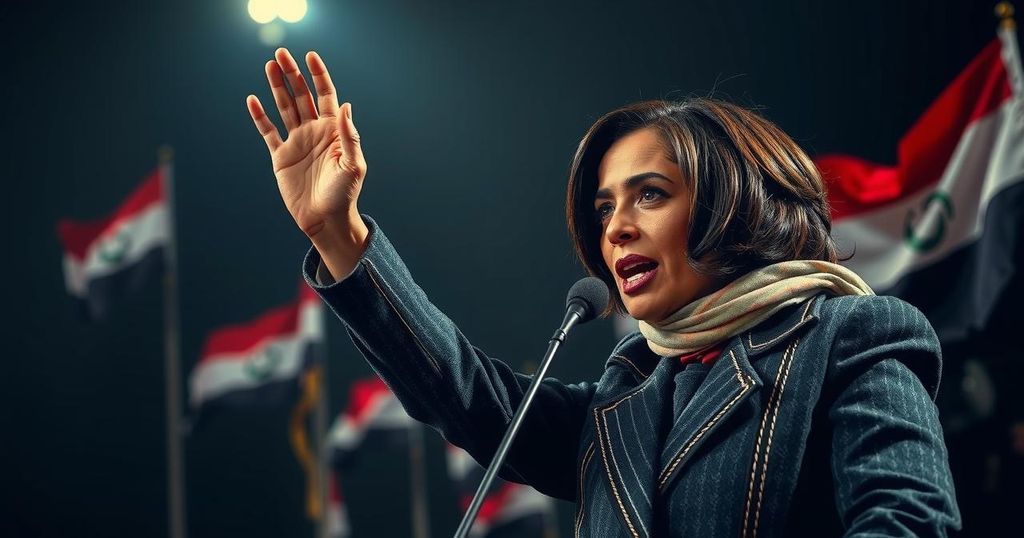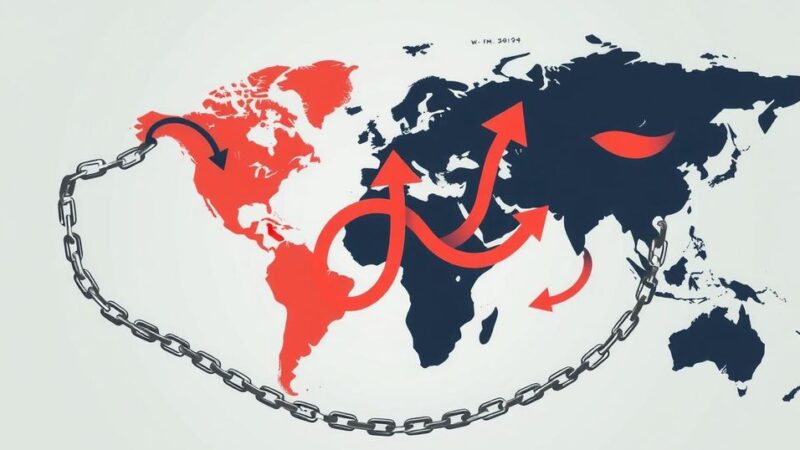Kamala Harris is grappling with the political fallout of the Biden administration’s numerous failures, including pandemic management and foreign policy missteps, which have eroded public confidence. Amid rising speculation about Donald Trump’s return, Harris may consider aggressive foreign policy actions, particularly towards Iran, as a strategy to enhance her political standing. This approach, however, poses significant risks of exacerbating conflicts in the Middle East and further complicating her political future.
Kamala Harris, frequently regarded as a misstep for the Democratic Party, finds herself grappling with a significant challenge as the Vice President amidst the turmoil associated with President Joe Biden’s administration. The Biden presidency is characterized by widespread discontent due to perceived failures in both domestic and international matters, creating a favorable environment for Donald Trump’s resurgence as a political force. Harris faces mounting difficulty in navigating this treacherous political landscape. The Biden administration has been heavily criticized for its handling of pivotal issues, most notably the COVID-19 pandemic. Although initially perceived as a crisis responsive administration, the lack of coherent policies regarding mask mandates, lockdowns, and economic recovery has sparked public disillusionment. Dr. Anthony Fauci’s polarizing status has only served to deepen domestic divides, showcasing a deficiency in the clarity of leadership needed during such a critical period. In the realm of foreign policy, President Biden’s approach has led to several missteps, notably in the ongoing conflict in Ukraine. Despite extensive military support to Ukraine to counter Russian aggression, the absence of a diplomatic resolution has contributed to sustained global instability and economic strains particularly in Europe. Simultaneously, Biden’s involvement in Middle Eastern politics, particularly concerning the Israeli-Palestinian conflict, has reignited age-old tensions, signaling potential escalation into broader military engagements. Concerns grow regarding the U.S.’s role in these geopolitical matters, as many speculate about Biden’s ongoing instability in addressing additional conflicts in regions where the administration was previously engaged, including Africa and the volatile Middle East. Most notably, the administration’s stance on border security has been another facet warranting scrutiny, with Kamala Harris, appointed as the ‘Border Czar’, criticized for failing to manage the substantial influx of migrants effectively. Instead of fortifying the borders, her actions have seemingly exacerbated the situation. The overarching dominance of Biden’s administration, drawing parallels with the Obama era, has rendered Harris a figure intertwined with the former president’s legacy. Many voters perceive her alignment with Obama-era policies as an extension of these strategies rather than a new direction, complicating her efforts to establish an independent political identity. This established narrative poses significant challenges for Harris, particularly as public dissatisfaction mounts ahead of the 2024 elections. With Biden’s administration lacking substantial victories and Donald Trump positioned to reclaim the presidency, Harris may consider a drastic strategic shift – potentially supporting military action against Iran. Historically, such actions have been employed by Democratic administrations as a method to redirect public focus towards national security, particularly in electoral contexts. The potential for an aggressive military operation could be a maneuver to consolidate her standing, framing her as a decisive leader amid chaos. However, the repercussions of such an approach could lead to prolonged instability within the Middle East, a situation many American voters are wary of, given the long history of U.S. entanglement in the region. Harris now stands at a pivotal moment as the 2024 elections approach, with her political survival hinging on her ability to navigate the complex landscape of Biden’s faltering administration. Tying her fortunes to Biden’s limited successes may yield little in way of political efficacy, compelling her to consider a militaristic strategy as a means of resurrecting her political prominence.
The ongoing political landscape in the United States under President Joe Biden’s administration has provoked significant public dissatisfaction, primarily due to failures in managing both domestic and international affairs. Harris’ role as Vice President places her in a precarious situation, as she is often viewed through the lens of Biden’s administration and its associated challenges. The Biden administration’s handling of the COVID-19 pandemic, foreign policy miscalculations, especially in Ukraine and the Middle East, and border security issues have collectively contributed to a narrative of decreased American credibility and diplomatic strength on the global stage. As Trump prepares for a potential political resurgence, Harris finds herself in a challenging position where she must reconsider her approach to solidify her political future.
In conclusion, Kamala Harris’s political future appears uncertain as she navigates the challenges presented by the Biden administration’s performance. With public discontent rising and Donald Trump posing a formidable challenge, Harris’s potential shift towards aggressive foreign policy maneuvers may be her only recourse to remain relevant in the political arena. However, such actions come with considerable risks and could potentially lead to further conflicts in the Middle East. As the 2024 elections draw closer, Harris must carefully balance her political identity with the tumultuous legacy of the current administration to secure her prospects going forward.
Original Source: ozarab.media







